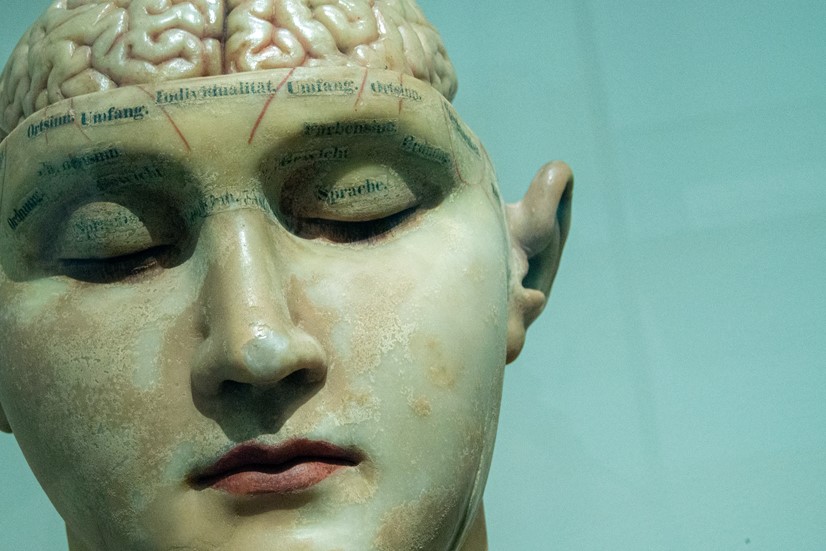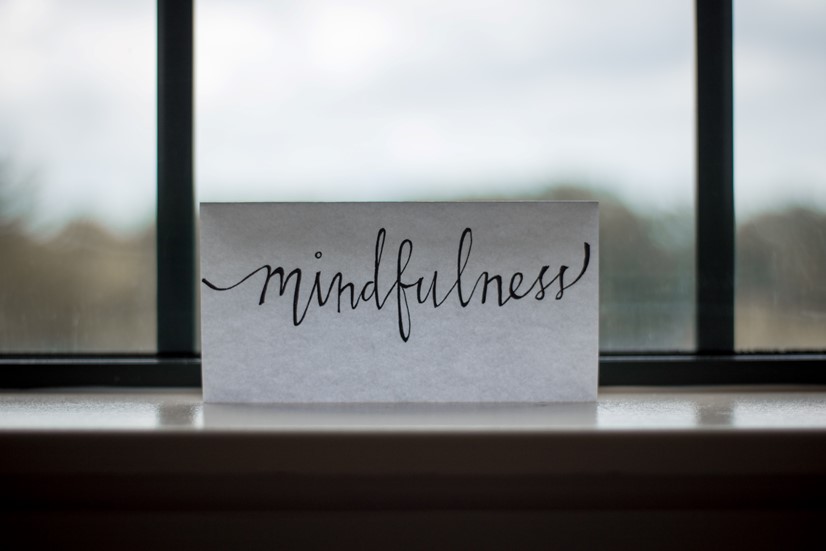How to Manage and Even Improve your Mental Health During Lockdown
We are currently living in unprecedented times, with isolation, home schooling, uncertainty, worry, stress, loneliness, grief, boredom, overwhelm and sadness, being key themes that my clients and friends are all talking about.
So how do we navigate this stress inducing time and emerge with our mental health not only intact, but hopefully improved? Enhancing our self-care routines and emotional management tools? a better understanding of ourselves? and growing empathy for others and the planet?
In this article I will hopefully shed some light on why our stress responses have been triggered, the effects this can have on the body and mind and what you can do to help alleviate and prevent it.
The science
Our brains have evolved to protect us, and your brain prioritises your survival over everything else through activation and consequently responding to your bodies ‘Threat system’. Which is one of the main emotional regulation systems and its purpose is to pick up on and protect us against immediate threats (fear) and perceived threats (anxiety). The three main emotions connected to the Threat system are Anger, Anxiety/fear and Disgust and these emotions drive our ‘Fight or Flight’ responses to danger or threats.

Explaining Anger (fight) and Anxiety/fear (flight) to my clients has always been easy, we fight our way through a threat, or we flee (flight) away from the threat, but explaining disgust has been more complicated, until now. Pathogens are bacteria or viruses that cause disease and your brain has evolved to react to that danger and this is where we see ‘Disgust’ come into play.
Have you noticed, areas clearing if someone coughs? Your desire to wear masks or gloves in public places? Or how disgusted we are by people who are not adhering to social distancing guidance? Your disgust is keeping you safe by limiting your exposure to the pathogen.
So at this point in time, our threat system is in overdrive (this is the way it is programmed to function, biologically) and you may notice yourself, or someone you know, is more anxious, worried or stressed (anxiety and fear), less patient or tolerant or more snappy (anger) or more judgemental, cautious or cleaner (disgust) than usual. This is a completely normal response to pathogens, but add to that pre-existing circumstances that may already be causing stress in people’s lives, existing mental health issues, the uncertainty of what’s happening during this pandemic, such as, job losses, financial concerns, loneliness, boredom, fear for the safety of others, anger at the government’s slow response and everything else that has been triggered, and most people are feeling the effects.
When the brain detects a threat, it initiates a cascade of responses through neuro and chemical (adrenaline and cortisol) signals and pathways, these responses prepare the body for fight or flight.
These include, but are not limited to; changes in breathing (shorter and shallower), increased heart rate, redistribution of blood from unessential processes, such as digestion (causing stomach problems and butterflies) to your arms and legs (inducing jelly-like or weak legs), sweating (to cool us down), muscle tension (increased kinetic potential), changes in posture, facial expression and voice tone (even our internal voice), changes to concentration, memory and cognitive function (your brain short cuts thought and you act instinctively, imagine a predator/prey situation where taking time over decisions could put you in trouble ). You may recognise some of these physical and mental changes from your own anxiety or anger responses. While present, these symptoms send feedback to the brain to confirm the presence of a threat and keep the system going as a form of feedback loop.
Your brain prioritises the threat system above all else and will become hypervigilant, looking for more threats once it’s triggered, this results in you focusing on the negative, looking for problems and struggling to notice or enjoy the positive, as this distracts you from the threat. Couple that with your inability to think clearly or remember stuff and the feedback loop process and you can see that this threat system can be a self-perpetuating cycle.
So, how do we:-
- Counteract this threat system?
- Manage the physical responses?
- Hack the feedback system?
- Help ourselves to relax and open to happiness?
In order rebalance our minds, we need to activate another of our emotional systems, namely, the ‘Soothing system’, which uses the chemicals oxytocin and serotonin to help us to relax, feel safe and feel more contented and connected in life, counteracting the Threat system and putting us back in control of our physical and emotional reactions.

There are a number of unhealthy ways people may try to sooth or distract themselves, many of these tend to involve stimulation of Dopamine pathways within our brain, whether through substance consumption (Alcohol, narcotics, prescription medicines and cigarettes to name a few) or other activities that stimulate the same pathways (retail therapy, comfort eating, sex, gambling or other examples). The Dopamine system is designed to give short bursts of pleasure/reward, it is not as a long-term solution, in fact, over time, the same amount of stimulate no longer induces a Dopamine release and levels need to be increased, this is how addictions grow.
So, let’s explore a healthier, more long-term way of soothing that will hopefully be passed onto future generations, so that they have better tools to manage their emotions. Here are 6 important areas that you can focus on.
Recognise and understand your emotions, thoughts and patterns
Obviously, working with a professional (therapist or counsellor) to help you explore and identify your emotions, thoughts and patterns is a great idea, but this might not be an option for everyone. However, there are websites, videos, podcasts, books and forums, where you can learn more about your mental health, emotions, thoughts, patterns and various conditions. So, educate yourself, because self-awareness or knowledge really is power when it comes to managing our emotions and thoughts.
Hack the feedback loop
The threat system can be self-perpetuating and certain symptoms will send feedback to the brain to say that there is still a threat present. For example, when there is a threat, we tend to roll our shoulders forward, either to protect ourselves or to fight, so notice your posture and open your chest up, straighten your back. We also exhibit negative facial expressions when we are stressed or in danger, (we don’t generally smile if we are being attacked), so bringing a small smile to our face can really help. Danger also causes changes in our tone of voice and we tend to become firmer, shout or sound annoyed, so recognising and changing your tone to become softer and gentle (even your internal tone), will be more effective than shouting at yourself or getting annoyed.
However, the most important feedback loop we need to disrupt is the breath, our breathing becomes shallow and shorter when we are running away or fighting, or even when we are anxious sat at a desk. We tend to have longer inhales than exhales, as we are trying to maximise our oxygen intake. Therefore, slowing our breathing down, breathing deeply into your belly and lengthening our exhale, informs the brain that there can no longer be a threat present. Try to inhale (all the way down to your belly) for 4-7 seconds and then exhale for 7-11 seconds (whatever feels comfortable for you).


Activate the Soothing system
The soothing system is activated by anything that makes us feel calm and relaxed and this is where you can experiment and try different things, building your soothing toolbox as you learn what works for you and what you need in different situations. Such as: -
- Various breathing techniques (of which there are hundreds available for you to try),
- Mindfulness practices, including meditations, body-scans, walking and eating.
- Grounding techniques such as walking or being in nature, growing roots into the earth or the 5,4,3,2,1 technique.
- Movement practices such as Yoga, Tai Chi and Qi Gong.
- However, this can also include sleeping, reading, listening to music, podcasts or audio books, warm baths, playing an instrument, getting creative, hugging someone or a pet, self-massage, gardening and anything else that works for you.


Expressing the emotion and releasing the energy
We can express these emotions and release their energy by talking to someone, journaling, drawing or painting, writing poetry, making music, dancing and moving, shouting, punching a pillow, snapping twigs or doing some energetic exercise to feel that release. Exercise also has the bonus of releasing chemicals that make us feel happier and it is said exercising three times a week is like taking mild antidepressants.
Shifting our focus
We have discussed how being in the threat system means that we tend to get stuck focusing on the negative and we struggle to naturally notice the positive. Therefore, an important part of making us happier is learning techniques to shift our attention. This can be done through having fun or through CBT techniques such as challenging our thoughts, doing thought records or rationalising, but these are often difficult without a therapist.
An alternative method is to begin recognising and acknowledging the positive experiences that happen in your daily life, no matter how small they are. Two techniques that I use myself and with clients are ‘3 things I’m grateful for’ and ‘the doubler’, both of which have a similar effect. With these techniques you spend a couple of minutes each day focusing on 3 new experiences you are grateful for or 1 new positive experience that happened in the last 24hrs. You write these down in detail, explaining why you are grateful or why it was positive.

These techniques work in a number of ways, firstly, they bring back the positive feelings that the experience initially gave you, secondly, writing it daily on a list, means you can refer back to this list when you feel down, sad or like nothing goes your way and thirdly and most importantly, it changes how our brain scans each day. If your mind knows that every day it must bring 1 or 3 positive experiences to mind, it begins looking for and noticing these experiences throughout the day in preparation.
This shifts our attention onto the more positive aspects of our day and has been proven to encourage optimism and make people substantially happier.
Practicing Mindfulness and Compassion
Mindfulness is defined as a mental state achieved by focusing one's awareness on the present moment, while calmly acknowledging and accepting one's feelings, thoughts, and bodily sensations. This means paying attention to our full experience without judgement, using all our senses and paying attention to what we experience, think, want and need. Within Mindfulness, there are several practices but mindfulness itself is a way of life, a way of living in the moment.
Noticing our needs is one thing, but to act on those needs, without judgement, or guilt, is a difficult task for many. This is where the practice of Compassion comes in, compassion is a sensitivity to the pain and suffering of self and others, with a commitment to alleviate or prevent it. This requires wisdom and insight into our needs and capabilities, while also taking courage to act on them.
Acts of kindness towards others are a great way of making us (and others) feel happier and shifting our focus away from the negative, but sometimes we need to put ourselves first, which many people may struggle with, but this is something we can learn with time and practice.
Hopefully, this article has shown you that the key to happiness and managing your emotions is to step away from the doing, achieving and productivity that this world prioritises, into a simpler way of being. One that encourages us to unwind, relax and do more of what feels good, healthy, nourishing, calming and energising. If you need more specific examples, I am currently running online workshops (Zoom) and an Isolation wellbeing challenge on Facebook and Instagram (Emma Quick Counselling), where I am posting daily ideas and practices that can help to learn more about yourself and develop tools for living a happier life.












